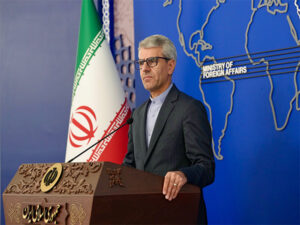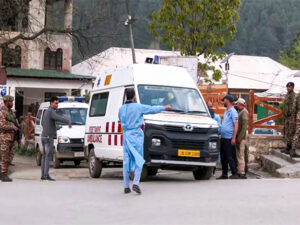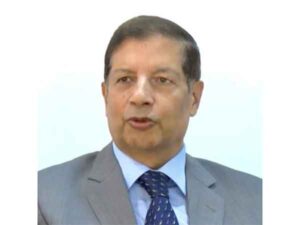Imran Khan’s party terms oath-taking of members on reserved seats “unconstitutional”
Islamabad [Pakistan], March 9 (ANI): The Pakistan Tehreek-e-Insaf (PTI) has termed the oath-taking of Members of the National Assembly on reserved seats “unconstitutional,” citing the Peshawar High Court’s verdict, The News International reported.
Omer Ayub Khan, who is a PTI-backed, Sunni Ittehad Council (SIC) lawmaker, made the remarks on the floor on Friday.
Notably, the Peshawar HC has stayed the oath-taking ceremony of lawmakers notified on reserved seats denied to the PTI-backed SIC until March 13, as reported by The News International.
Ayub’s statement came after several newly elected lawmakers on reserved seats in the National Assembly were sworn in. Speaker Ayaz Sadiq administered the oath to the MNAs amid ruckus and sloganeering by the PTI-backed SIC lawmakers.
Taking the floor, Ayub — Imran Khan’s pick for the leader of the opposition — said: “Today’s oath-taking of MNAs on reserved seats is illegal and has no [legal] standing.”
Raising questions over the oathtaking, the PTI leader asked how would a country run without the rule of law. “The system cannot work like this.”
PTI Chairman Gohar Ali Khan told the speaker that the Peshawar HC had issued a stay on oath-taking of reserved seats lawmakers and the oath cannot be administered to them until the decision of the case.
The PTI leader said that the reserved seats for his party could not be allocated to any other.
Responding to him, the speaker remarked that the lower house of the parliament did not receive order from the Election Commission of Pakistan (ECP) or the court regarding the oath-taking of MNAs on reserved seats, as reported by The News International.
In a bid to clear the air surrounding the matter, Attorney General for Pakistan Mansoor Usman Awan said the decision of the Peshwar HC applies directly to the representative of the province.
“No member falling under the jurisdiction of PHC has taken oath today,” Awan added. The attorney general said that Peshawar HC’s verdict does not apply to Sindh and Balochistan.






